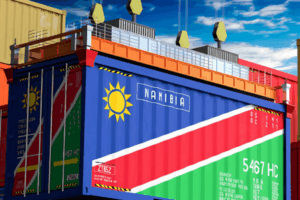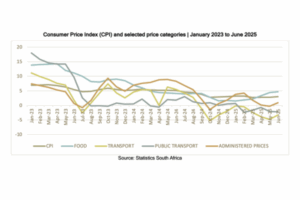Advocacy for a just transition is a priority for trade unions in the energy sector in sub-Saharan Africa. We put together arguments that trade unions can use to build a just transition advocacy campaign for decent jobs and less hardship for workers and their communities.
These three key focus areas can make or break a trade union campaign targeting different stakeholders:
Advocacy focus area 1: Aligning advocacy for a just energy transition with the imperatives of economic growth
Governments are currently responsible for energy decision-making and policy development. Given the high poverty rates in sub-Saharan Africa, governments put economic growth over all other factors.
So, if a trade union demanded that the government allocate a large percentage of the GDP to a just transition based on environmental concerns, the argument would carry far less weight than one based on socio-economic issues. The region’s low carbon footprint requires a just transition argument focused on poverty reduction, job creation, and improved access to energy, health and education. The ten key arguments we have developed will help trade unions push for this goal. Renewable energy programmes based on socio-economic arguments exist in South Africa, Thailand and Mexico. These arguments carried enough weight to implement renewable programs without international influence and pressure. Governments were swayed by the socio-economic merits of the programmes.
To secure support for the just transition agenda, trade unions should use the socio-economic potential associated with an energy transition as a starting point. Governments are powerful policy actors focused on economic growth and prosperity. A just transition campaign should packaged accordingly to secure much-needed support.
Advocacy focus area 2: Making just transition a hot topic by using existing examples
Research shows that advocacy campaigns have a most impact when the target audience can relate the issue to immediate outcomes around them. Appealing to people’s empathy makes them more likely to buy into the need for change. Unions can use shocking statistics, as outlined in the ten just transition arguments, to help people understand the reality and seriousness of the issue. For example, 600,000 women and children die each year from exposure to indoor pollution, making it a problem that few people can ignore. It is also necessary to help stakeholders visualise the improved future that a just transition can bring.
We should imagine a future where energy belongs to everyone and is reliable, with respect for workers and trade unions, clean and safe working conditions, decent jobs, better health and education services, and social protection.
Advocacy focus 3: Building alliances and coalitions
Trade unions cannot achieve a just transition on their own. They need strong alliances and coalitions to be effective. Unions must cooperate with stakeholders such as governments, business, civil society and communities. Alliance-building and coalition-making can help bring about positive change and ensure that the interests of all stakeholders are considered.
In summary, to build an effective union campaign for just transition, we need to focus on social and economic issues, use existing examples to show the need for change and work together with other actors. Then we can achieve “a hopeful and optimistic future for all workers, especially those in industries that may be impacted by efforts to limit greenhouse gases or by the introduction of new technologies”, as stated by IndustriALL Global Union.
Working definition of a just transition for energy unions in SSA
“A just transition in sub-Sahara Africa will create universal access to clean, reliable energies and improve the lives of millions of people. Social dialogue will form part of every step, and no worker or community will be left behind. Workers will have decent protected jobs with access to training and reskilling opportunities. Social protection will be available to all citizens, while communities will operate in diversified and viable economies. Energy will be democratised through public and social ownership with good governance principles. A just transition will dismantle interlinked systems of oppression. It will recognise the role women’s unpaid and low-paid work has contributed to sustaining the status-quo and provide them with better opportunities. Within a just transition, challenges but also resources and opportunities will be equally shared for us to take care of each other.”
Defining a just transition for energy for Sub-Saharan energy workers - A discussion paper (Industriall and LRS, 2020)
ESSENTIAL RESOURCE: Defining a Just Transition for Sub-Saharan Energy Workers – A discussion paper of the Sub-Saharan Africa Energy Network.
RELATED RESOURCE: Trade Unions Going Green Environmental issues in the world of work







